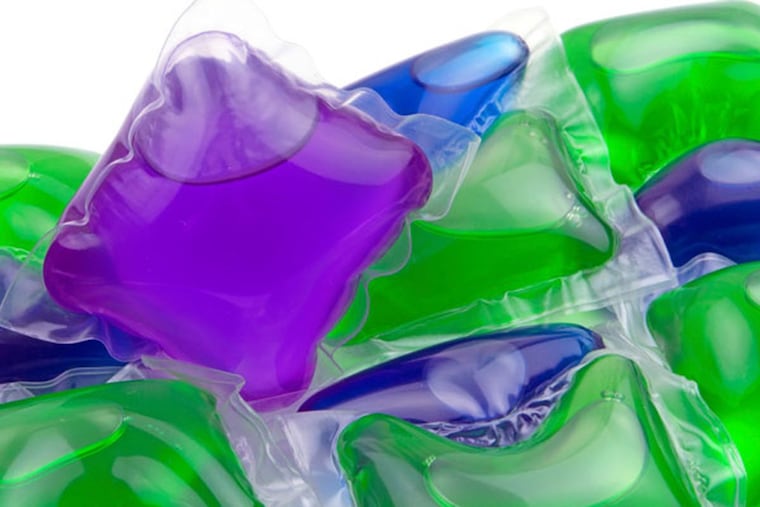The laundry pod challenge is more dangerous than you think
The "Tide pod challenge" has teens daring each other over social media to bite into detergent packets. Here are the health risks involved.

When you see a laundry pod packet, the first thing you probably think of is candy, right? No! But for young children, the candy-like appearance of these small, brightly colored, concentrated liquid laundry detergent packets has created much curiosity.
And it seems that toddlers aren't the only curious age group. A new trend has appeared in the social media world, involving an age group that we all would agree should know better: teens.
Since hitting the U.S. market around 2012, the American Association of Poison Control Centers has warned the public about the detergent pods and has received thousands of calls regarding toddlers who came in contact them. The AAPCC reported last year that over 10,500 children younger than 5 years old were exposed to laundry pods
The symptoms ranged from mild upset stomach to excessive vomiting, wheezing, and gasping. Even more worrisome, there have been cases of serious respiratory issues, which require hospitalizations and intubation. Though the majority of concern is with ingestion, exposures to other sensitive areas of the body occurs, as well. If the liquid comes in contact with the eyes, for instance, it could lead to corneal abrasions, in which the eyes are scratched, and this can expose these victims to infections. Most important, ingestion could lead to aspiration by the liquid going down the wrong pipe and possibly result in death.
In the first few weeks of 2018, 37 teens have already been exposed, and half of these cases were intentional. Last year, approximately 220 teens were exposed and 25 percent of the cases were intentional, as reported by the AAPCC.
What is the "Tide pod challenge"? Teens are posting online their creative ways of how they are exposing themselves to laundry pods. Some posted material shows the pods placed on actual food or simply placed in the mouth and bitten. Teens may think putting them in their mouths is harmless but the pods dissolve upon contact with water, or in this case, human saliva. Just putting a pod in your mouth is hazardous and could mean exposure to a highly concentrated detergent, even if you think it's only a small amount.
Why are they doing this? Research has shown there is a relationship between appetite and color, and laundry pods have that going for them – the combination of scented detergent and the swirl of bright colors in a fun, squishy packet. However, we believe that there is more at play with regard to teen exposures. We know that the developing teen brain, especially in males, increases the potential for high-risk behavior; and social media attention seems to only worsen the spread of these crazy ideas. Other examples are the "cinnamon challenge," "nutmeg challenge," "salt and ice challenge," and, unfortunately, there are several others.
Who started this trend? Teens, of course. But, seriously, some sources say a 2013 forum initially discussed the idea of eating pods after their creation. The Onion posted a satirical piece in 2015 about the need to ingest pods and because laundry pods are so popular recently, a 2017 article was posted about "new sour apple-flavored Tide Pods." With all this in mind, the more we talk about it, the more teens truly consider doing this, especially for the sake of viral popularity and foamy mouths. But at this point, they need know what health risks are involved with ingestion.
So let's reiterate: Do not eat laundry pods. Don't put them in your mouth. Don't put them on food. But if it happens, do call the Poison Control Center's national hotline at 1-800-222-1222 or the Philadelphia center at 215-590-2100. These hotlines are staffed 24 hours a day, seven days a week.
Phuong Nguyen, PharmD candidate 2018, Temple University School of Pharmacy, and Thomas Too, PharmD candidate 2018, University of the Sciences (Philadelphia College of Pharmacy), wrote this in conjunction with the Poison Control Center at Children's Hospital of Philadelphia.